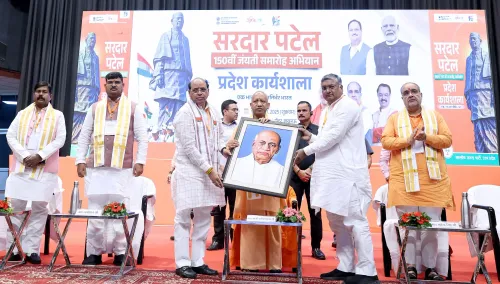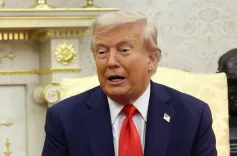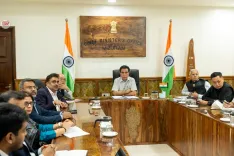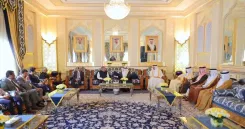Has the Government Committed to the Development of Tribal Communities?
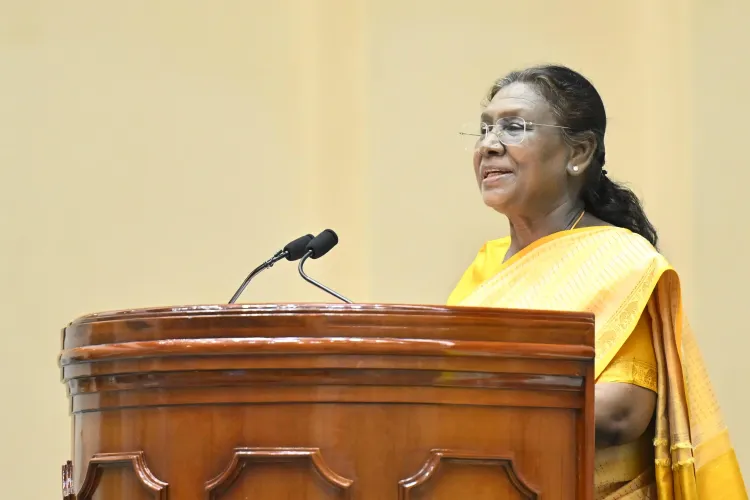
Synopsis
Key Takeaways
- Government's commitment to tribal development
- Adi Karmayogi Abhiyan promotes self-reliance
- Importance of education and health for tribal communities
- Empowerment through Gram Sabhas
- Holistic approach to tribal welfare
New Delhi, Oct 17 (NationPress) President Droupadi Murmu emphasized on Friday that the government is dedicated to the comprehensive advancement of tribal communities, noting that the true progress of our nation and society is rooted in the upliftment of all societal segments.
During her address at the national conclave of the ‘Adi Karmayogi Abhiyan’, she stated that the government’s initiatives are designed not just to offer financial support to tribal individuals but also to facilitate opportunities in education, health, employment, technical skills, and equitable governance participation.
At this Delhi event, she also awarded the top-performing states, districts, blocks, and Integrated Tribal Development Agencies.
The President remarked that this conclave symbolizes our national commitment to achieve governance that is genuinely participatory, inclusive, and driven by the people.
She added that the Adi Karmayogi Abhiyan was initiated with the transformative objective of making every tribal village self-sufficient and proud.
She underscored that this initiative seeks to ensure active participation from tribal communities in the nation’s development trajectory, ensuring that the fruits of progress are accessible to all tribal regions and individuals.
Murmu expressed optimism that the Tribal Action Framework will significantly contribute to the advancement of our tribal populace and the country as a whole.
The President noted that the Adi Karmayogi Abhiyan fortifies the ethos of public participation through the empowerment of Gram Sabhas and community-led organizations.
She mentioned that through the meaningful engagement of tribal society, national policies can be shaped and programs made more effective.
Murmu stated that tribal traditions remind us that development should coexist harmoniously with nature.
The President highlighted the various concrete measures taken by the government in recent years to ensure the holistic development of tribal communities.
She pointed out that the government has swiftly enhanced infrastructure in tribal areas, establishing residential schools and scholarship initiatives to assimilate tribal youth into the mainstream.
Murmu emphasized that skill development and self-employment initiatives have revitalized traditional crafts, handicrafts, and entrepreneurship.
She expressed satisfaction that these endeavors have not only expanded livelihood opportunities but also bolstered self-esteem and self-sufficiency among tribal people.
The President reiterated that in our quest for a developed India, it is crucial to remember that the genuine progress of the nation and society hinges on the development of all societal segments.
She concluded by stating that we must cultivate an inclusive society where all citizens actively participate and can shape their destiny.

